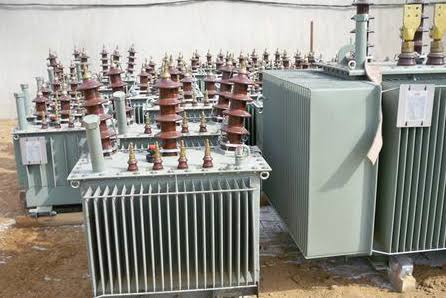The Nigerian Electricity Regulatory Commission (NERC), on Friday, warned consumers against self-procurement of transformers without a formal agreement with distribution companies (DisCos).
Aisha Mahmud, NERC’s commissioner and customer affairs, spoke at the commission’s three-day meeting with the customers of Eko Electricity Distribution Company (EKEDC) in Lagos.
Mahmud said it is not the responsibility of customers to procure transformers for the DisCos.
She said if such happens, the customers and the DisCos must sign an undertaking.
Advertisement
“Customers often overlook their rights and entitlements; paying for electricity should guarantee not just power but a superior service experience, and customers should assert their rights to quality service when paying their bills,” she said.
“It is crucial for customers to understand that investing in the distribution network, including transformer purchases, is not their responsibility.
“While the cost is factored into the electricity tariff, if customers choose to invest in infrastructure like distribution transformers, the law permits DisCos to incorporate the investment into the tariff, enabling them to earn returns over the asset’s economic lifespan.
Advertisement
“If about N100 million, for instance, is invested in the purchase of the transformers by the DisCos, it is expected to be spread over fifteen years within the economic life of that asset, and recovery of the cost gradually deducted by customers’ billings.
“NERC came up with regulations, customers can fund the purchase of the direct transformer meters, and they will be refunded.
“In this case, what the regulation stipulates is that the customers have to sign an agreement with DisCos stating that a certain amount of money has been used to purchase the transformer, and a refund will be made over a certain number of years based on the agreement with interest and dispute resolution clause.”
Addressing the funding constraints within the Nigerian Electricity Supply Industry (NESI), particularly concerning the national mass metering scheme, she pointed out the financial struggles experienced by industry players.
Advertisement
Mahmud stressed the need for adequate funding and financing mechanisms to support initiatives aimed at improving metering infrastructure and addressing the deficit.
Also speaking, Susie Onwuka, the head of Lagos office of the Federal Competition and Consumer Protection Commission (FCCPC), urged distribution companies to design effective feedback mechanisms in responding to customers’ complaints.
Onwuka assured consumers that the regulator, through the forum, would address all concerned areas.
“The major complaints received from all over the country is on over billing, community transformer problems, disregard of metering and regulations from NERC with respect to disconnection, energy tapping, tariff band classification,” she said.
Advertisement
“Other issues also have to do with account reconciliation, adjustment bottlenecks, disconnection without notice, and billing before connection of the billed property with electricity.
“These are issues that are very serious for consumers, and when they request reconciliation most time the DisCos are not forthcoming.
Advertisement
“That is why complaints are brought to the NERC and FCCPC, which is the last resort apart from the court.”
Onwuka described the forum as an intervention aimed at bringing all the stakeholders together to listen to consumers’ complaints and resolve them, adding that the FCCPC would also get commitment from DisCos on a timeframe within which these complaints would be resolved.
Advertisement
‘ILLEGAL CONNECTION, METER BY-PASSING AND TAMPERING ATTRACT SERIOUS CRIME’
Osakuni Emmason, secretary of the NERC Eko forum, also urged consumers to ensure that metering and other electrical equipment within their premises belonging to DisCos are not tampered with, or by-passed.
Advertisement
He said customers should also notify the distribution company within their jurisdiction of any outstanding electricity bill before moving into new premises.
According to Emmason, unauthorised access, which includes illegal connection, meter by-passing and tampering as well as several other physical methods to evade payment for electricity consumption, constitutes a serious crime.






